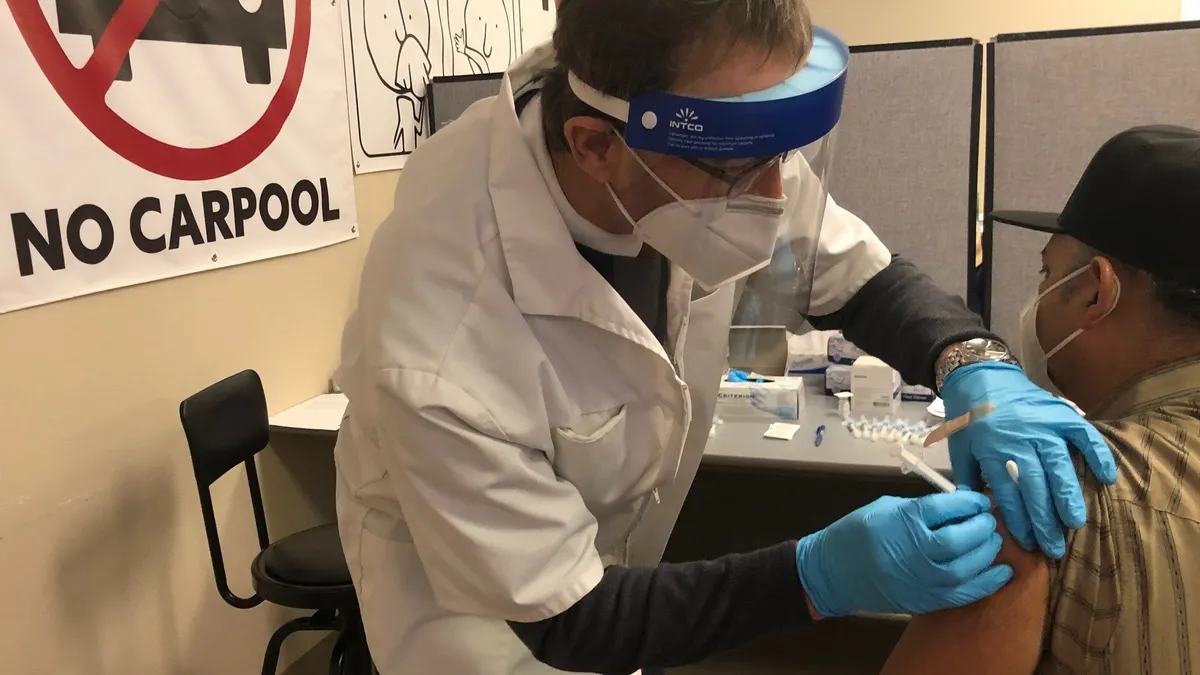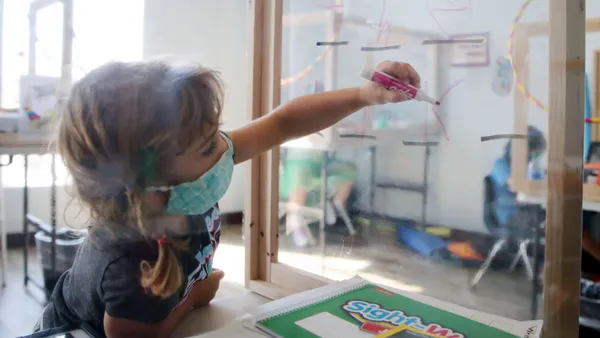Dive Brief:
- A majority of educators, school staff and childcare workers have received at least one shot of the available COVID-19 vaccines, according to surveys from the Centers for Disease Control and Prevention and the American Federation of Teachers.
- Surveys conducted by the CDC in collaboration with the Administration for Children and Families, the U.S. Department of Education and non-federal partners at the end of March found nearly 80% of almost 53,000 Pre-K-12 teachers, school staff and childcare worker respondents reported having received at least their first shot.
- An independent survey conducted by Hart Research Associates on behalf of AFT found 88% of 1,702 union member respondents are either vaccinated or have an appointment to do so. Respondents cited being able to reopen schools safely and protect students and staff as factors in their decisions to get inoculated.
Dive Insight:
President Joe Biden dedicated the month of March to vaccinating K-12 workers by directing states to make school staff eligible and prioritize them through the Federal Retail Pharmacy Program. The program was a collaboration between the federal government and states pushing retail pharmacy locations like CVS and Walgreens to dedicate all unclaimed vaccination appointments for teachers, staff and childcare workers.
The CDC said that, following the directive, the number of states where these essential workers were eligible increased by more than 50%. However, states expanded their eligibility by varying degrees, according to Kathleen Ethier, director of the Centers for Disease Control and Prevention's Division of Adolescent and School Health in the National Center for HIV/AIDS, Viral Hepatitis, STD and TB Prevention. While some states made all educators and school staff eligible, others kept age parameters around eligibility or varied eligibility by county, Ethier said during a webinar in late March.
Despite the variations, the CDC said more than 2 million teachers, school staff and childcare employees were vaccinated through the Federal Retail Pharmacy Program during March, and as many as 6 million were vaccinated through their states by the end of the month.
In a press release, the CDC said efforts like school-specific vaccination effectors "contributed to the success of this national endeavor."
Superintendents have gone to great lengths to organize and carry out school-based vaccination clinics, sometimes collaborating with multiple districts to inoculate school staff and even open vaccinations to the general public. Pre-planning, picking times and locations wisely, protecting staff privacy and coordinating partnerships with local pharmacies and healthcare organizations are essential to successful vaccination events.
Ethier also described school leaders as essential to the success of such vaccination efforts, especially when it comes to dispelling mistrust.
According to the AFT survey, there still remains a hesitancy among Republican, Black and brown members. To address this, Ethier suggested having experts speak transparently, clearly and accurately about the safety, efficacy and urgency of the COVID-19 vaccines. Peers can also influence hesitant coworkers by spreading positive messages on social media, during meetings and through other platforms.
While retail pharmacies may no longer be dedicating open appointments for school staff, eligibility for educators and staff within states remains as is.














